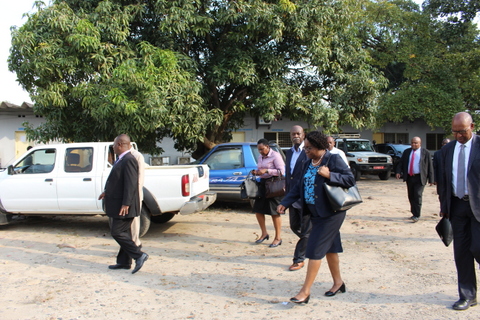
Burundi export products are set to access the larger regional market following improvement of their quality standards. This has been made possible through the provision of laboratory equipment to the agency responsible for Standardization and Quality Control (BBN) in Burundi.
The equipment, provided under the COMESA Regional Integration Support Mechanism (RISM), include a UV spectrophotometer, a flame photometer, a pH meter, a fiber analyzer, a distillation unit for protein analysis, a sugar analyzer, an alcohol analyzer, an oxygen and carbon dioxide analyzer.
“The equipment has enabled the institution to carry out analysis of over 20 additional parameters which were previously done out of the country. This will raise the standards of Burundian goods and eventually lead to the certification of more export commodities. In addition, they have provided additional confidence to local consumers on the safety of the local products.
The Report indicated that the equipment has positively impacted on product certification and cut down on costs and the certification process as the laboratory does not need to subcontract part of its analysis as was the case in the past. All the testing parameters are now done in-house.
As a result, a large number of local milk producers are now able to take their products for certification earmarked for export while previously only small quantities of the products products were exported. This was due to high certification costs occasioned by the need to analyze antibiotic residues such as tetracycline, chloramphenicol in milk, and aflatoxins in other milk products outside the country.
“Now the whole process is done at BBN’s labs as they respond to the export requirements of products at EAC and COMESA level,” the Report read in part.
Under the RISM programme, whose funds originate from the European Union (EU) through the COMESA Adjustment Fund (CAF), Burundi has received financial support of close to 16 million Euros over the 2010-2020 period. The funds have helped Burundi to address challenges that inhibited its deeper integration into the regional economy thus enabling it to take full advantage of the opportunities offered by such wider markets that COMESA and the East African Community present.
Regional statistics indicate that trade flows between Burundi and members of these regional blocs are among the lowest in the region.
In supporting the country, COMESA has leveraged on the Strategic Framework for Economic Growth and Poverty Reduction developed by Burundi authorities which emphasizes consumer protection as an important aspect of trade promotion. The strategy also stresses the need for permanent monitoring of the quality of marketed products and conformity to international standards which would allow Burundi to reach the quality of goods required to export to its neighbouring countries.
The Report also identified the challenges faced by local stakeholders such as the need for a National Quality Plan as well as better training on equipment and standards to improve the quality of goods and facilitate export to regional and international markets.
Through the support from RISM, the National Quality Policy was developed last year and is currently awaiting adoption by the Burundi Council of Ministers. Trainings were also provided to eight BBN technical staff of the physics-chemical analysis laboratory on operation, elementary maintenance, and sample preparation and analysis of the equipment delivered by COMESA to the chemistry laboratory.
The Report adds: “The training has helped the staff make proper use of the equipment to make chemical analysis on goods being assessed for their quality. And it is to be noted that with the use of the latest procured lab kits, additional parameters can be added with additional testing parameters planned on local goods.”

